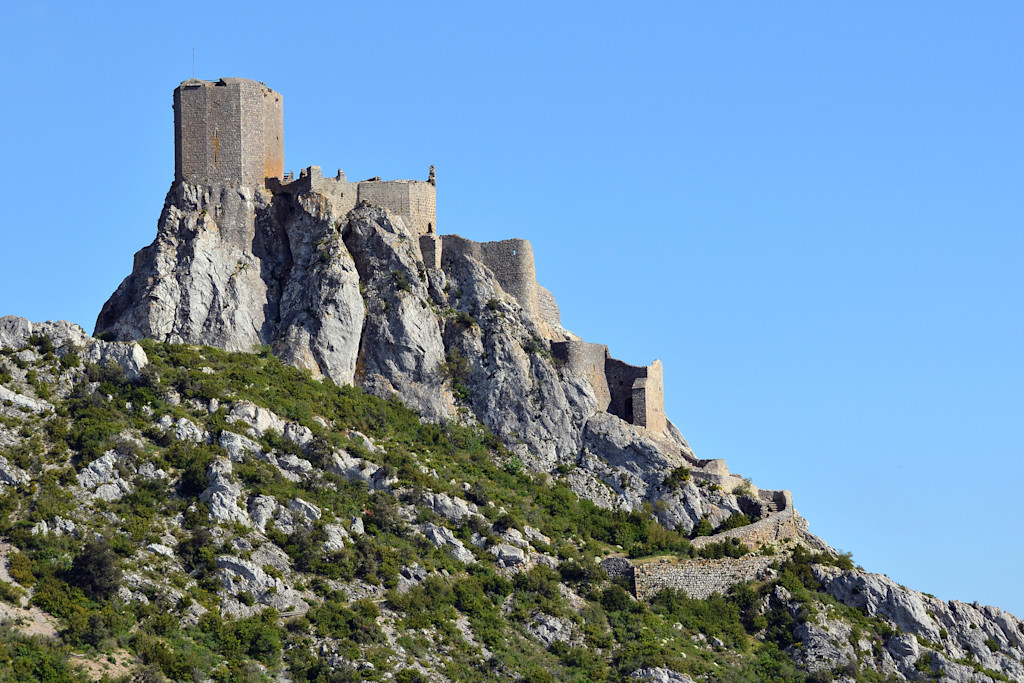
15 February 2021 | Tourism
Le Château de Quéribus in Cathar country
The Cathars
Between the 10th and 13th centuries, a medieval Christian movement appeared in the South of France, dissident from the Roman Church. These good men and women had more radical beliefs and lived in the greatest chastity and detachment from material goods with strict rules. Later these heretics, according to the Christians, were called "Cathars", whose etymology comes from the Greek "catharos" which means "pure". It took 4 decades for the King of France and the Pope to put an end to Catharism.
The Cathar Country
Today there are 22 sites to visit in this region of the Cathars, most of which are located in the Aude and the Pyrénées Orientales. These include castles, abbeys, medieval towns and a number of museums. We invite you to browse the following website which includes all the places to visit: https://www.payscathare.org/en/the-sites The majority of the ruined castles were not built by the Cathars but long after their eradication. These castles are in fact sentinel fortresses designed to protect the borders of the Kingdom.
The castle of Quéribus
Perched on a rocky outcrop more than 700m high, the castle of Quéribus offers a breathtaking view over the entire plain down to the sea. It has 3 enclosures. You will find all the characteristics of a defensive castle: archers, machicolations, gunnery loopholes. Not forgetting the patrolling paths and casemates to keep a watchful eye on the castle. Quéribus remains a small fortress where 15 to 20 soldiers once lived.
Cucugnan
The Château de Quéribus is located in Cucugnan in the Aude. It is a village made famous by Alphonse Daudet's story "Le Curé de Cucugnan". Alphonse Daudet is not the author, he took it from and translated it from a writing from Roumanille. It tells the story of a country priest who realises that faith is no longer present in his village. He then decides to confess all the inhabitants of the village and to give them back their faith. In this recording, Fernandel tell the story of the priest of Cucugnan from the letters of my Moulin d'Alphonse Daudet:
